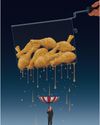
The pandemic has changed the way millions of Indians live, the way they work, the way they shop and even the things they shop. As people hibernated indoors, online stockpiling of essentials skyrocketed and the demand for fast and safe home deliveries increased tremendously. At the same time, to avoid crowded supermarkets, people are going for contactless shopping alternatives such as Zomato, Swiggy, Grofers, BigBasket and Dunzo. Hyperlocal delivery is emerging as a growing trend in the Indian market, as more and more storekeepers are now adopting multichannel strategies to cater to customer demands.
CONVENIENCE OVER COST
Hyperlocal groups come in a huge variety of sizes, leadership styles, and goal-orientations, but they all share one crucial trait: they exist to create value and return value back to their local communities. They collaborate to access resources together, such as group purchases of groceries to limit individual exposure to health risks. To respond to the current crisis and meet future ones, food retailers need to use technology in new and different ways to scale up their e-commerce establishments and their capacity for home delivery. They can do so by expanding shifts in existing warehouses and converting a few retail locations into convenient stores. They can also use technology to enable their business and support consumers, not only by increasing their self-checkouts but also by looking end to end and considering how technology can make things safer for customers. Both e-commerce improvements and tech enablement will require new capabilities and talent possibly from other industries or an investment in retraining current employees.
この記事は Entrepreneur magazine の October 2020 版に掲載されています。
7 日間の Magzter GOLD 無料トライアルを開始して、何千もの厳選されたプレミアム ストーリー、9,000 以上の雑誌や新聞にアクセスしてください。
すでに購読者です ? サインイン
この記事は Entrepreneur magazine の October 2020 版に掲載されています。
7 日間の Magzter GOLD 無料トライアルを開始して、何千もの厳選されたプレミアム ストーリー、9,000 以上の雑誌や新聞にアクセスしてください。
すでに購読者です? サインイン

Chords of Success
For Saahil Goel, the deep-rooted passion for playing the guitar dates back to his high school days. Influenced by legends like Pink Floyd, Led Zeppelin, and the Pakistani band Strings, his musical journey mirrors his leadership style-balancing focus, discipline, and a collaborative spirit. Goel feels that playing guitar has enhanced his ability to balance focus and teamwork as a founder of an eCommerce shipping start-up.

IS YOUR RENT TOO DAMN HIGH?
Many small business owners struggle with their rents. Here's what to do.

HOW TO BOUNCE BACK FROM A BAD REVIEW
A one-star review can hurt your ego - and your business. But it's possible to prevent (and remedy!) this scary scenario.

HOW TO HIRE FOR THE FUTURE
Small businesses are struggling to find quality labor. So flip the conversation: Show workers how your business will set them up for opportunity.

You Can Hire Like Netflix
The streaming platform built an incredible team with a strategy called “talent density.” But you don’t need to be a tech giant to do it.

Speedy Growth Killed My Startup
We seemed to be rocking it - lots of press, major partnerships. Then we learned the harsh consequences of overlooking our customers.

Three Pivots to $100 Million
How do you find a working business model? Do it like Rowan-a brand that reinvented itself many times before finally piercing the ear-piercing market.

What Goals Actually Matter?
Some benchmarks are more important than others so what should you really care about? We asked six founders for their hardest-won lessons.

'Only the Strongest Are Going to Survive'
Brian Lee cofounded companies like LegalZoom and ShoeDazzle-and he believes a lot of conventional business wisdom is backward. Sure, it's harder to raise capital. But it's actually cheaper than ever to start a company.

HOW TRUST SAVED KFC
The former CEO of Yum! Brands explains how he turned around a struggling KFC-and the important lesson it offers for anyone in franchising.